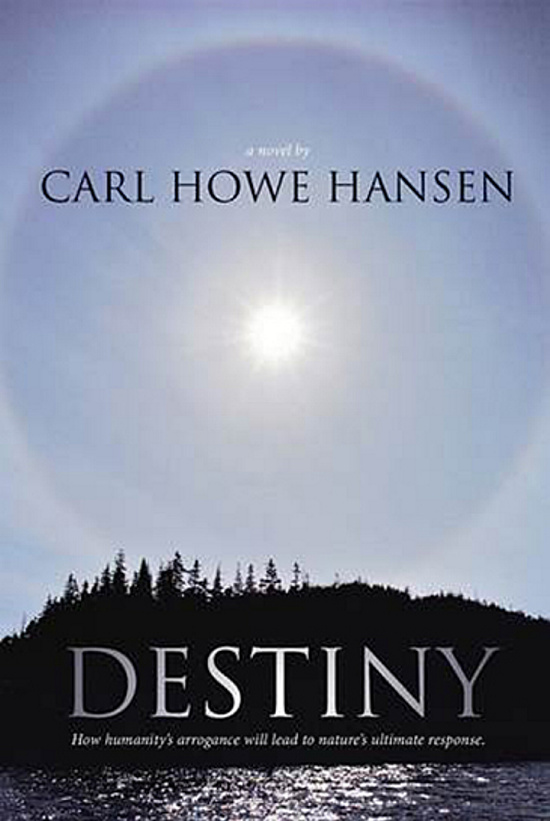THE HAVENER SISTERS
By Ardeana Hamlin
Islandport Press, 2015
317 pages, $16.95
With so much popular fiction focused on stories of tragedy, sadness and discord, it is refreshing to read a heart-warming, inspirational tale of goodness, tenderness, charity and pure love. “The Havener Sisters” is one of the warmest, most uplifting books of the past year.
Author Ardeana Hamlin lives in Hampden, Maine, and offers this third book in her excellent historical fiction series of 19th-century life, following “Pink Chimneys” and “Abbott’s Reach.”
Set in Maine in 1881 and 1882, this is the story of the Havener sisters, identical triplets born into a seafaring family and raised aboard their father’s ship. Now age 55, the unmarried spinster sisters — China, Persia and India — live together ashore, facing a shrinking financial future.
These are uncertain times, but China decides on a drastic departure from their lives together (they’ve never been separated). China is struck with a desire to seek her own way, to be independent with travel and a possible career in photography. Her sisters are aghast, but China is determined to explore herself on her own terms.
With her camera and her resourceful spirit, she travels to inland Maine to see and photograph the people and places she’s never seen. A woman traveling alone, and as a photographer, is a novelty. But China finds folks welcoming, interested and helpful everywhere from Bangor to Bingham.
Her adventures are varied and exciting, including taking on a teenage boy as her “cabin boy” assistant, as well as adopting an orphaned 6-year-old girl. She and her sisters confront waterfront hoodlums in Bangor (a sharpened umbrella tip is a forceful persuader), and China experiences the tingling ignition of romance with a handsome widower.
Hamlin is a masterful storyteller, creating a wonderful, wholesome story of good people, good manners and good deeds.
DESTINY
By Carl Howe Hansen
Maine Authors Publishing, 2015
367 pages, $17.95
Renowned science fiction writer Isaac Asimov (1920-1992) once wrote: “The saddest aspect of life right now is that science gathers knowledge faster than society gathers wisdom.” And Carl Howe Hansen’s debut novel, “Destiny,” vividly illustrates that Asimov was right.
Clearly, Hansen’s novel is intended to be a loud-ringing wake-up alarm about the disastrous, unintended consequences of man’s messing about with Mother Nature — a sobering indictment of man’s ignorance and arrogance regarding the Earth and the natural world.
Hansen has an active imagination and a solid plot, as humanity impotently faces a self-inflicted environmental crisis.
Socially conscious scientist Dr. Peter Petersen has developed an oil-eating bacterium to combat oil spills. This would be an eco-friendly tool for handling such calamities, right? Not so fast.
The formula was sold to an unscrupulous defense contractor who weaponized the bacterium without proper testing. When Cape Cod Bay is flooded with crude oil after a tanker sinks, the White House hastily orders the bacterium deployed by aircraft spray.
Unfortunately, the bacterium eats not only the crude oil, but everything made with petrochemicals — plastics, fiberglass, rubber, insulation, wiring, everything. Planes crash, ships sink, transportation, computer and telephone systems fail, electrical and water systems fail, and American society is plunged into chaos, panic and anarchy.
Petersen, his family and colleagues race to find a scientific solution as they struggle to survive in a world rapidly crashing around them. The bacterium spreads to Europe and beyond, and now it is a global catastrophe.
This is certainly a scary scenario, a well-crafted plot with good potential. Sadly, despite its promotional hype, the book is too long by a 100 pages, lacks the expected gripping suspense, and corny family drama doesn’t help.
Still, Hansen’s theme is on target. And so was Asimov.
Bill Bushnell lives and writes in Harpswell.
Send questions/comments to the editors.




Success. Please wait for the page to reload. If the page does not reload within 5 seconds, please refresh the page.
Enter your email and password to access comments.
Hi, to comment on stories you must . This profile is in addition to your subscription and website login.
Already have a commenting profile? .
Invalid username/password.
Please check your email to confirm and complete your registration.
Only subscribers are eligible to post comments. Please subscribe or login first for digital access. Here’s why.
Use the form below to reset your password. When you've submitted your account email, we will send an email with a reset code.